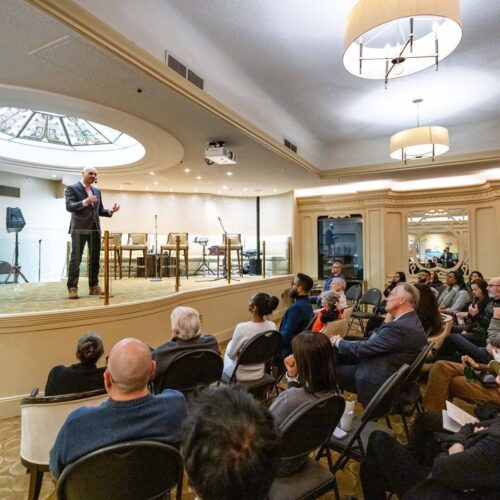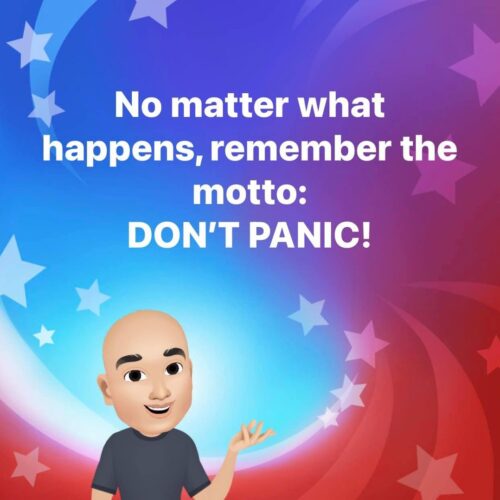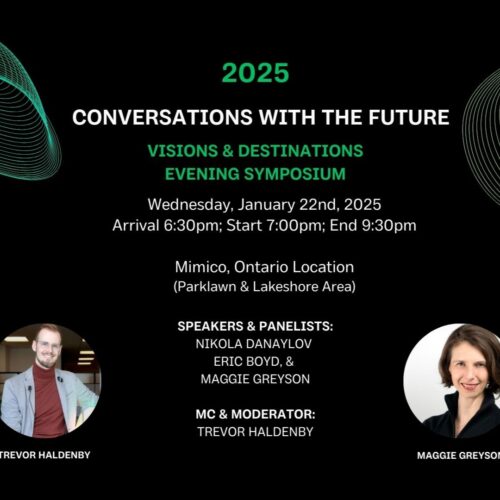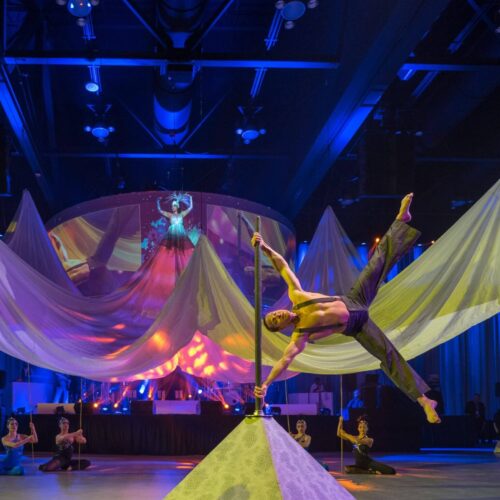Do We Need to Have a “Future Day”?
“In thinking about how to get people interested in and excited about Transhumanist ideas explicitly, one idea I thought about was to create a holiday for the future. You think about all these holidays we have they are all about past events, but what if there were a holiday specifically oriented towards future events. So you could have many of them, you could have a ‘Singularity Day’, an ‘Artilect War Day’ for the future war, or simply a ‘Future Day’, to try and bring people together around the idea of creating a better future”
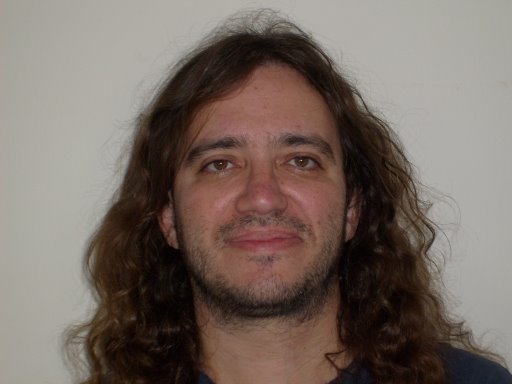 The remarks above were made by Ben Goertzel during the question and answer period of last week’s H+ Leadership Summit (see the full video at the end of the article), a discussion held in virtual world Second Life on leadership and the realization of Transhumanist goals. Author and polymath Howard Bloom, who positively influenced the musical careers of Michael Jackson, Prince, John Cougar Mellencamp, Kiss, Queen, Bette Midler, Billy Joel, Diana Ross, Simon & Garfunkel, and many others, responded enthusiastically to Goertzel’s suggestion, calling the idea ‘fabulous’, and stating that in addition to being a source of excitement and means to raise awareness regarding Transhumanist ideas, an event of this nature could have broad reaching societal affect, potentially altering the prevailing mood of the time by turning over a new leaf of optimism. Bloom argues that in periods of economic collapse “we lose our sense of a future,” and “the thing that pulls us out of the trenches, and back up onto the landscape and charging toward the future is someone’s willingness to give us a vision of the future”. During the 1930s, the vision serving this function was the vision to electrify every home – which at the time, he points out, seemed “absolutely absurd.” And having a vision, in and of itself, can have a leveraging effect, he says, as a vision of the future “pulls us into the future.”
The remarks above were made by Ben Goertzel during the question and answer period of last week’s H+ Leadership Summit (see the full video at the end of the article), a discussion held in virtual world Second Life on leadership and the realization of Transhumanist goals. Author and polymath Howard Bloom, who positively influenced the musical careers of Michael Jackson, Prince, John Cougar Mellencamp, Kiss, Queen, Bette Midler, Billy Joel, Diana Ross, Simon & Garfunkel, and many others, responded enthusiastically to Goertzel’s suggestion, calling the idea ‘fabulous’, and stating that in addition to being a source of excitement and means to raise awareness regarding Transhumanist ideas, an event of this nature could have broad reaching societal affect, potentially altering the prevailing mood of the time by turning over a new leaf of optimism. Bloom argues that in periods of economic collapse “we lose our sense of a future,” and “the thing that pulls us out of the trenches, and back up onto the landscape and charging toward the future is someone’s willingness to give us a vision of the future”. During the 1930s, the vision serving this function was the vision to electrify every home – which at the time, he points out, seemed “absolutely absurd.” And having a vision, in and of itself, can have a leveraging effect, he says, as a vision of the future “pulls us into the future.”
 When it comes to optimism and moving forward, the Transhumanist outlook has a great deal to offer. Before us we see perpetual and accelerating progress, important breakthroughs occurring regularly, with radical predictions being met and exceeded, and knowledge exploding. And the Transhumanist vision more broadly is one of innovation and pushing beyond boundaries. But, as Bloom and others point out, in the interest of reaching as many people as possible, it’s best the holiday not be specifically Transhumanist, and instead be something more general so that everyone could readily understand and easily connect with. Natasha Vita-More adds that it should be something “beyond religion, beyond politics, and has the vision of expanding our horizons.”
When it comes to optimism and moving forward, the Transhumanist outlook has a great deal to offer. Before us we see perpetual and accelerating progress, important breakthroughs occurring regularly, with radical predictions being met and exceeded, and knowledge exploding. And the Transhumanist vision more broadly is one of innovation and pushing beyond boundaries. But, as Bloom and others point out, in the interest of reaching as many people as possible, it’s best the holiday not be specifically Transhumanist, and instead be something more general so that everyone could readily understand and easily connect with. Natasha Vita-More adds that it should be something “beyond religion, beyond politics, and has the vision of expanding our horizons.”
The success of related events, such as Yuri’s Night:A World Space Party, an event celebrated annually in now more than 30 countries, indicates viability in the ‘Future Day’ idea. Yuri’s Night, in addition to honoring Yuri Garagin – the first human in space, who flew the Vostok 1 spaceship on April 12, 1961, is meant to inspire interest in space exploration, and more generally, science. I attended the event this year in Edmonton Alberta, held at the Edmonton Space and Science Center, and found it did just that. But ‘Future Day’ could be much more expansive. Natasha Vita-More and others identify other successful future oriented events in the past, such as the ‘World’s Fair’ (which this year was held only in China) and Bruce Mau’s ‘Massive Change’ initiative, as examples of events with similar magnitude and/or spirit to what a ‘Future Day’ could strive to become. Bloom remarks “we need people to apply their minds to the future the way they applied their minds to the World’s Fairs in the past”, where projects just kept get “bigger, and bigger, and bigger.”
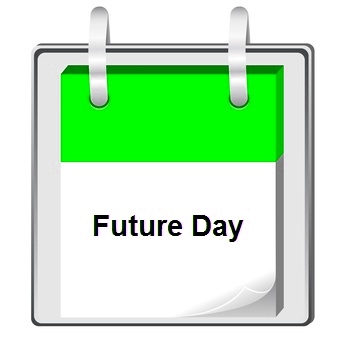 Holidays have many positive social functions. For one, they create connections across entire societies, and sometimes internationally. In celebrating, people develop parallel experiences, and forge subtle bonds. ‘Future Day’, then, could offer people a means to relate to one another regarding the future. And as Goertzel points out, a holiday celebrating the future could serve to unify diverse groups already oriented around future building, by “giving them something to contribute to without making them feel as though it was diluting their mission.”
Holidays have many positive social functions. For one, they create connections across entire societies, and sometimes internationally. In celebrating, people develop parallel experiences, and forge subtle bonds. ‘Future Day’, then, could offer people a means to relate to one another regarding the future. And as Goertzel points out, a holiday celebrating the future could serve to unify diverse groups already oriented around future building, by “giving them something to contribute to without making them feel as though it was diluting their mission.”
Holidays are traditionally backward looking in nature, and a means of cultural preservation rather than evolution. ‘Future Day’ could have the opposite effect, making people more enthusiastic about change, and offering a vision that makes us more inclined to reach toward the future, and less afraid to let go of past ideas that may be interfering with progress.
So what features might a holiday for the future have?
Festivals: Cutting edge technology exhibits, musical events, fanfare. I can imagine more digital versions of colorful international festivals like the Holi festival and future oriented large-scale art installations the scale of Burning Man.
Activities for Kids: A great way to introduce kids to Transhumanist ideas. Could include school projects in the way kids do Christmas projects – plays about the future, crafts about the future etc.
Parades: A good way to get corporate sponsorship, and a good way to get media attention. Another great way to get kids interested in futurist ideas.
Parties: All kinds of parties. Wild parties celebrating future social liberation, cognitive enhancement parties, costume parties, dress like your avatar parties.
Celebrity Endorsement: Leonardo DiCaprio endorsed official secular holiday Earth Day in year 2000, and celebrities endorse social causes all the time. Future Day could also have cutting edge, provocative appeal that would motivate celebrities to associate themselves with the event.
Peaceful Protests: My guess is that as more people become excited about the future and want to see certain technologies developed sooner rather than later, more will come to feel there are unnecessary obstacles standing in the way of future tech. To date there is not much activism going on related directly to achieving Transhumanist goals, although some have taken matters into their own hands, in the form of Singularity political letter writing. Using ‘Earth Day’ as an example – holidays offer an opportunity to raise awareness regarding political and social issues. There are many humanitarian aspects of Transhumanism worth campaigning for, and this could be one way in which university students are involved in ‘Future Day’.
The Second Life conversation on ‘Future Day’ concluded with agreement that the idea should be pursued, and that refining the vision and working out the details would occur between H+ board members over the next couple weeks. Board members also discussed the benefits such an event would have for Transhumanism more specifically, such as shifting the focus from risks and ethics to something with more vision and more ‘fun’, and creating a vehicle and franchise in which to deliver Transhumanist ideas to the public. It will be exciting to see what they come up with, and watch the idea evolve as others become involved in the planning.
About the Author:
 Nikki Olson is a writer/researcher working on an upcoming book about the Singularity with Dr. Kim Solez, as well as relevant educational material for the Lifeboat Foundation. She has a background in philosophy and sociology, and has been involved extensively in Singularity research for 3 years. You can reach Nikki via email at [email protected].
Nikki Olson is a writer/researcher working on an upcoming book about the Singularity with Dr. Kim Solez, as well as relevant educational material for the Lifeboat Foundation. She has a background in philosophy and sociology, and has been involved extensively in Singularity research for 3 years. You can reach Nikki via email at [email protected].
Humanity+ community event in Second Life, September 15, 2011
[youtube]https://youtu.be/6TW6FnvUFcE[/youtube]
Related articles




